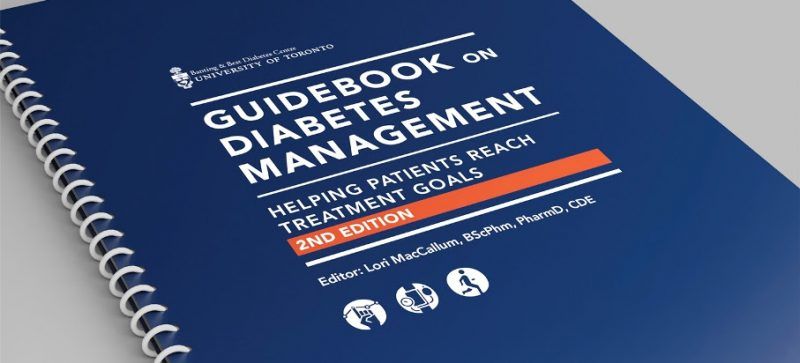Author: Linxi Mytkolli
Second Edition of the Guidebook on Diabetes Management Out Now
The Banting and Best Diabetes Centre’s (BBDC’s) Knowledge Translation and Optimizing Care Models Program and Diabetes Pharmacists Network, recently released the second edition of their highly-regarded BBDC Guidebook on Diabetes Management.
Led by Dr. Lori MacCallum, a Diabetes Action Canada researcher, the latest edition incorporates recommendations from Canadian clinical practice guidelines in diabetes, hypertension, lipids and the use of antiplatelet agents. It also includes information health care providers need to know to help them implement these recommendations, including detailed information on over 100 medications, clinical pearls, helpful tips for educating patients using motivational interviewing techniques and for managing common side effects.
To order your copy, visit the U of T Bookstore.
New study from Diabetes Action Canada researcher highlights increase in diabetes-related amputation in Ontario
Recently, a study led by Diabetes Action Canada researcher Charles de Mestral from St. Michael’s Hospital in Toronto was released in CMAJ.
This study shows lower-limb amputation rates for those with diabetes in Ontario are rising, which highlights the need for improvements in care and access to resources in order to slow this progression.
“This study makes clear that healthcare professionals and policy makers need to work together to uncover the root causes of this increase and develop solutions to improve outcomes for people living with diabetes,” says Dr. Gary Lewis, Scientific Co-Lead for Diabetes Action Canada. “While this rise may seem small when compared against the overall increase in type 2 diabetes diagnosis in the province, it hammers home the need to be vigilant about foot care. Amputation is one of the most dreaded potential consequences of diabetes and it is critical we continue to advocate for improved outcomes in this area.”
While this study does not provide a clear reason for why this increase is occurring, it does remind us that there are things clinicians and patients can do to help in lowering the risk of a diabetes-related amputation.
Dr. Bruce Perkins’ provides a commentary in the same issue of CMAJ, which looks at some of the important takeaways for clinicians from this study. This includes renewed efforts to understand the underlying causes for this rise and to improve on the processes for identifying those at risk and improving preventive care.
For those with diabetes, this study is a reminder of the need to be vigilant about foot care. Amputation is a scary potential complication. However, there are things a patient can do to help decrease the risk:
- If you have diabetes, check your feet daily – contact your healthcare professional right away if you see any cuts, sores or signs of infection.
- If you have diabetes, it’s critical to get your feet checked regularly by a health care provider.
- If your doctor or endocrinologist does not suggest a foot assessment, don’t fear asking them for a referral.
- If foot care is difficult to access in your community, ask your health care provider to help you find the resources you need.
Diabetes Canada offers a helpful checklist for those with diabetes to help support better foot care. You can access it on their website.
For more information about the work Diabetes Action Canada is doing in this area, visit the section of our website on Foot Care and Prevention of Amputation.






